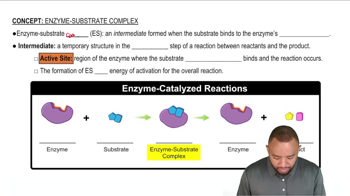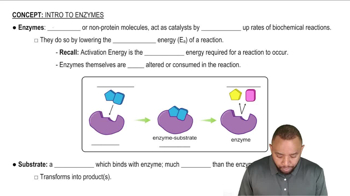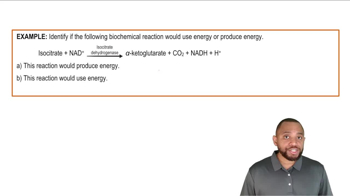What is the name of the class of enzymes that would catalyze each of the following reactions?
c. converting glucose (C6H12O6) to fructose (C6H12O6).
 Verified step by step guidance
Verified step by step guidance Verified video answer for a similar problem:
Verified video answer for a similar problem:



 :39m
:39mMaster Common Naming Concept 1 with a bite sized video explanation from Jules
Start learning